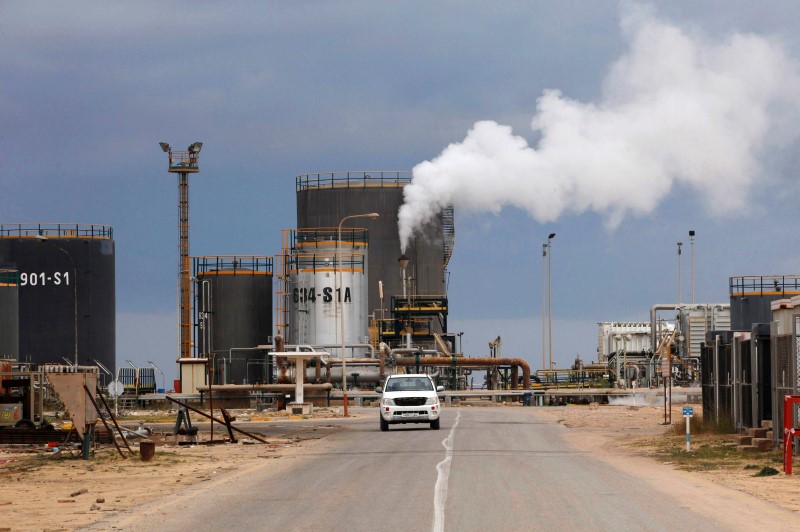Crude Oil Higher on OPEC Production Cut Expectations
2022.10.04 10:18
[ad_1]

© Reuters.
By Peter Nurse
Investing.com — Oil prices rose Tuesday, boosted by a weaker dollar as well as expectations that OPEC+ will announce a large cut to crude output later this week.
By 08:45 ET (12:45 GMT), futures traded 1.8% higher at $85.10 a barrel, while the contract rose 2% to $90.60.
The Organization of the Petroleum Exporting Countries and its allies, a group known as , meets on Wednesday, the first in person meeting this year. It is widely expected to agree to announce a cut to production at this meeting, with a reduction of more than one million barrels per day being discussed, according to reports.
This would be the largest reduction since the pandemic, and would follow on from the cut of 100,000 barrels per day last month.
“While such a cut would occur amid one of the tightest markets in recorded history, and ahead of a potential decline in Russian exports later this year, such a decision could be justified by the recent large decline in prices, down 40% since their June peak,” said analysts at Goldman Sachs, in a note.
“The collapse in investor participation, driving liquidity and prices lower, is also a likely strong catalyst for such a cut, as it would increase the carry in oil and start to claw back investors who have instead turned to USD cash allocation following aggressive Fed hikes,” the influential investment bank added
Helping the crude market has been recent weakness in the U.S. currency, following falling U.S. bond yields lower.
The dropped 0.6% to 110.995 Tuesday, having traded as high as 114.78 last week, making crude, which is denominated in dollars, cheaper for foreign buyers.
The moves in the dollar and yields appear to partially reflect market participants’ greater comfort that the Fed is moving closer to the end of its rate hike cycle, expectations that were supported by weak U.S. manufacturing data released Monday.
The will release its weekly inventory estimates later in the session. Crude stocks have risen for the last five weeks in a row since Labor Day signaled the end of the summer driving season.
Away from the crude market, Eurozone finance ministers are still trying to agree on a unified response to the crisis, with Germany’s announcement last week of a 200 billion euro package causing disagreement.
The White House has ruled out any ban or curbs on natural-gas exports this winter, Reuters reported Tuesday, in a bid to help alleviate energy shortages in Europe.
[ad_2]
Source link








